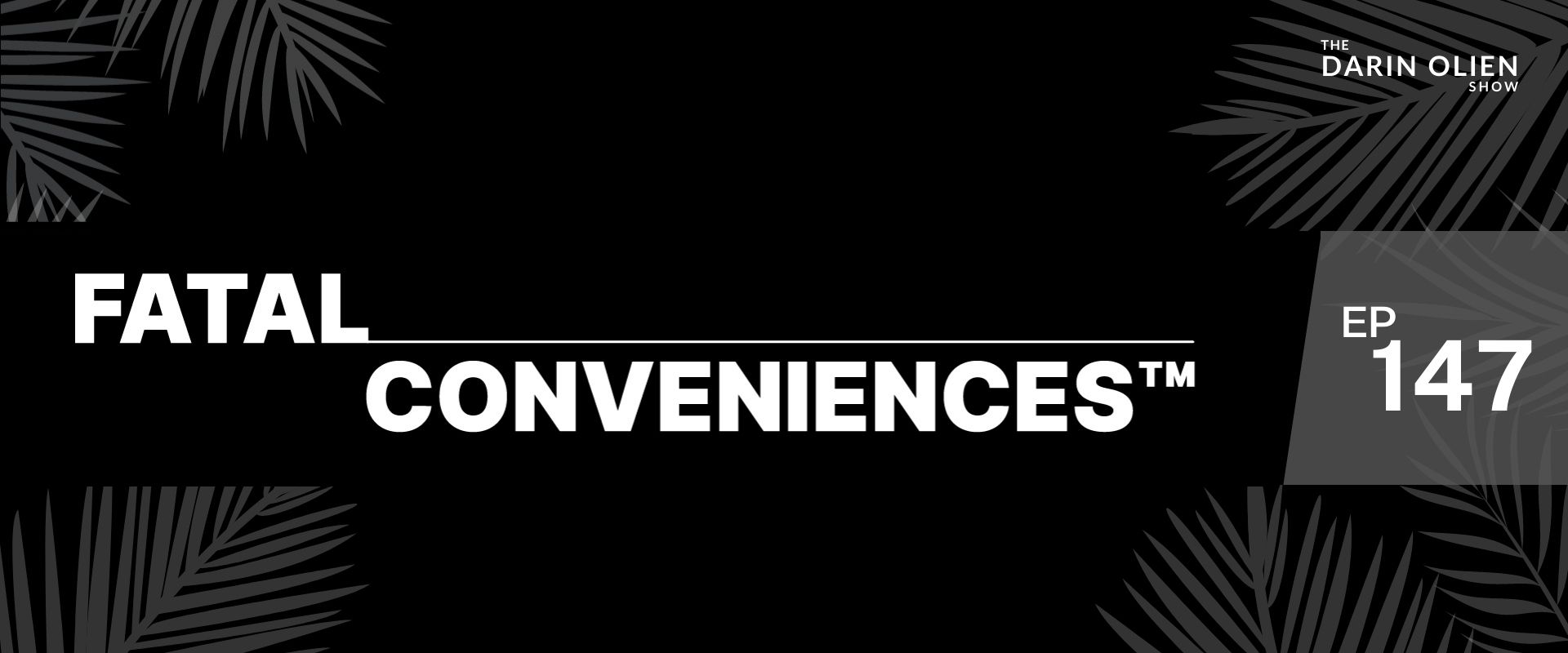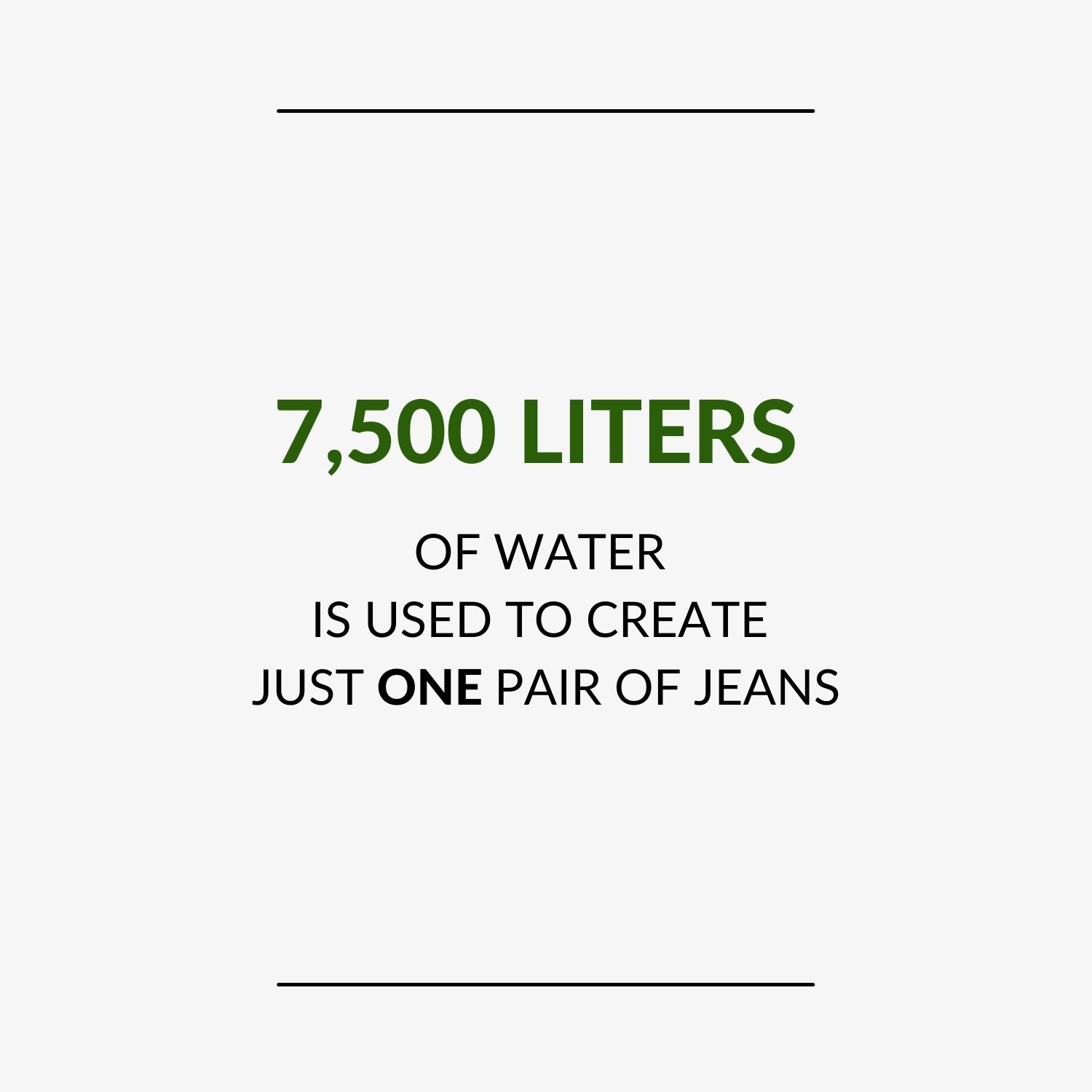20 Jan Fast Fashion | Fatal Conveniences™

Podcast: Play in new window | Download
Subscribe: RSS
Trends come and go in the blink of an eye. Fast fashion is a way to keep up with those trends. The clothes are cheap, easy to find and come in every color of the rainbow. It makes it easy to afford a different outfit for every day of the week if you wish. But at what cost? This fast fashion is endangering our health, the health of the planet and the dignity of workers all over the world.
WELCOME TO Fatal Conveniences™.
The average person buys 60% more clothing than they actually need. 
Ever walk by a store window or get an ad that pops up on your social media and think “oh that’s nice and cheap, I’ll buy it”?
Yeah, we all have. I’m even guilty of that, in my younger days anyway. Maybe you wear the outfit once or twice, and then it sits in your closet for years. Or you toss it out and it sits in a landfill for years. The point is: cheap, trendy clothes are not a good thing. Have you ever wondered why fast fashion is so affordable?
Those trendy outfits at the mall are cheap because companies are outsourcing cheap labor. And by cheap labor, I mean exploiting workers by not paying them a fair, or livable, wage. Remember, you vote with your dollars. So when you’re buying fast fashion from companies screwing over their workers, you’re supporting that.
But wait, there’s more. The fashion industry is one of the biggest sources of pollution on our planet! It takes 7500 liters of water to produce one pair of jeans. I mean, come on! And all those cheap materials are full of toxins that are terrible for your body and your health. Remember that anything with chemicals off-gas, so not only are those toxins soaking into your skin, you’re breathing them in as well.
There is a better way, guys. You can say no to those fast fashion gimmicks and go old-school. Shop at consignment shops, buy vintage. Make your own clothes, patch up your old ones. I’m in the market for a sewing machine myself so I can do just that! You don’t need a closet full of cheap clothes, and neither do your kids. Support fashion companies that practice ethical business methods, pay their workers a fair wage and use sustainable, clean fabrics. It’s time to slow down this fast fashion craze.
BREAKDOWN
[00:01:27] What is “fast fashion”?
[00:02:38] The origin story of fast fashion
[00:04:16] Buying clothes you don’t need
[00:05:29] What fast fashion is doing to our planet
[00:07:27] How to break the fast fashion cycle
I really hope you enjoyed this episode of The Darin Olien Show! If you want to support or follow the podcast, here’s how:
Subscribe, rate or listen on Apple, Spotify, Stitcher
Follow my Instagram to keep updated on the podcast, weekly deep dives and other projects that I’m supporting (and the occasional Chaga appreciation post)
Sign up for my weekly Fatal Conveniences™ Email to get topic breakdowns & solutions delivered straight to your inbox.
For feedback or suggestions, email my team at info@darinolien.com
Find the list of brands & products that get the big tick of approval from me here.
Comment below to join the discussion!
Podcast: Play in new window | Download
Subscribe: RSS


Cris Fowers
Posted at 13:06h, 20 JanuaryDeseret Industries is a great resource for used clothing in Utah. They do a lot of good around the globe.
There is a lot we can learn from this organization.
Marissa Farrell
Posted at 07:59h, 25 FebruaryDarien. I really enjoy listening to and learning through your podcast. But, after so many episodes in your Fatal Conveniences stream, I have to point out that the vast majority of people don’t have the income to avoid these conveniences… because for them, it is not a convenience, it is a necessity.
I 100% agree with what you discuss through your shows and follow my own healthy life for my family and pets and my patients as a holistic healthcare practitioner.
But you miss the last step in many episodes when you don’t offer a solution that is cost effective for the majority of people.
If we look at the fashion episode alone, the idea of bamboo and upcycled clothing is great but really expensive on the whole. I know you talked about thrifting and hemming, but those concepts have an end point, especially where raising kids is concerned. Kids want to dress well, have to in many circumstances, and so fast fashion is all many families can afford.
I’m not here to criticize you but to offer you insight as to what I’m not hearing as I listen to all your great info. How can we bring solutions to people that are at the lower income bracket with kids, pets, holidays, tap water….
You have a platform. Please help all who listen to feel included.
Hannah
Posted at 14:49h, 20 MayHi! My comment is for Malissa above.
Coming from a classified poor household , I understand what you are trying to say here.
However, Darin does point out to go to thrift stores etc . Those clothes are cheap. They have already been made and can now be reused. A lot of thrift stores won’t take clothes that look too worn out or have holes so kids don’t feel like they are wearing hand me downs . When I was younger and my mom couldn’t afford much, she would actually make it a game at the thrift store to find the best shirt etc . It’s all about mindset and coming to your own senses.
For those who can afford bamboo etc, that’s awesome! They last longer then a lot of fast fashions so therefore you need to buy less . And the point of purchasing these higher bracket clothes is to not over purchase. So instead of 15 shirts of crap quality, you have 7 and rewear them often.
Not trying to belittle what you are trying to convey in your message. Just feel that saying “I’m poor so this doesn’t work for me” is a cop out with a narrow mindset and a little research for those who need to be more frugal with their money goes a long way.